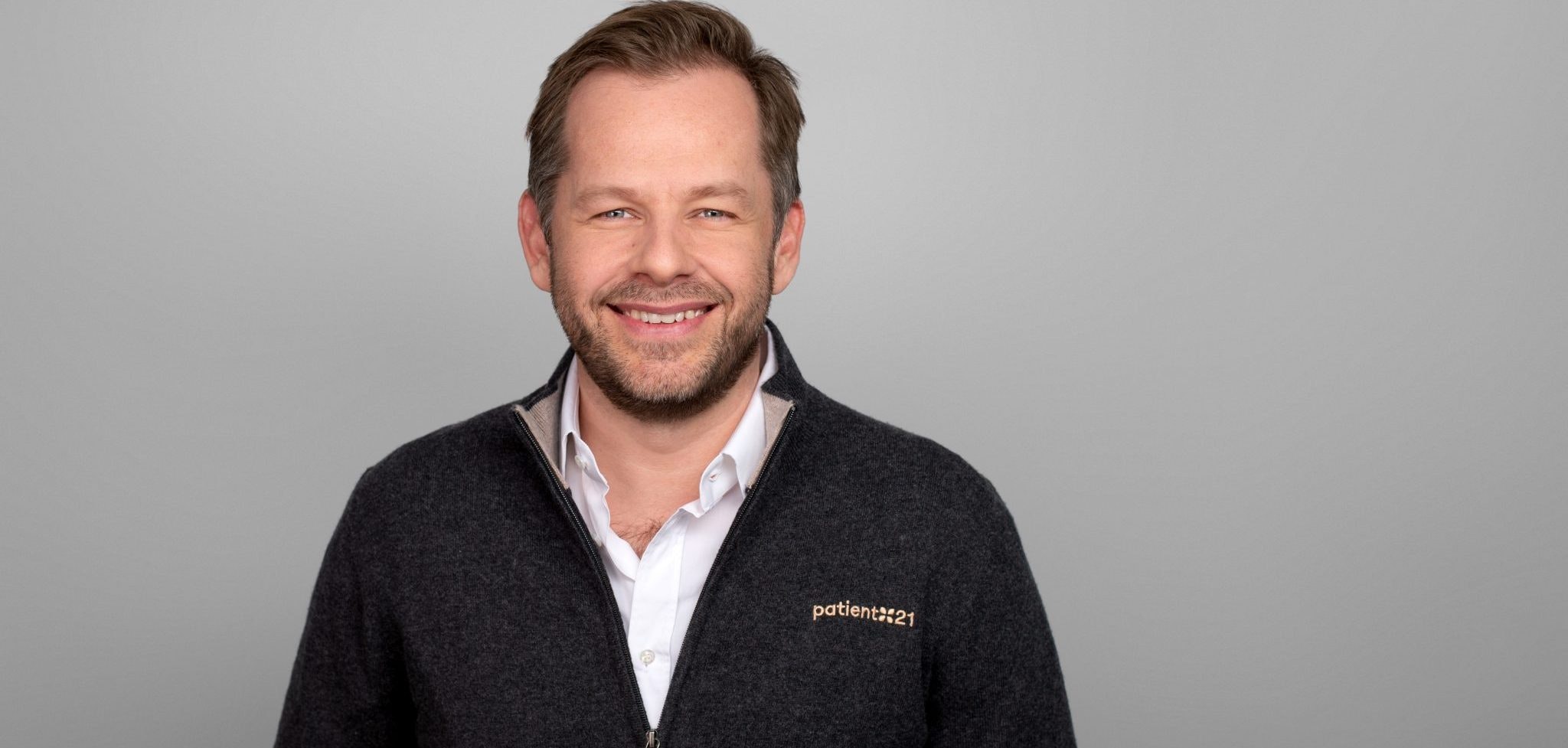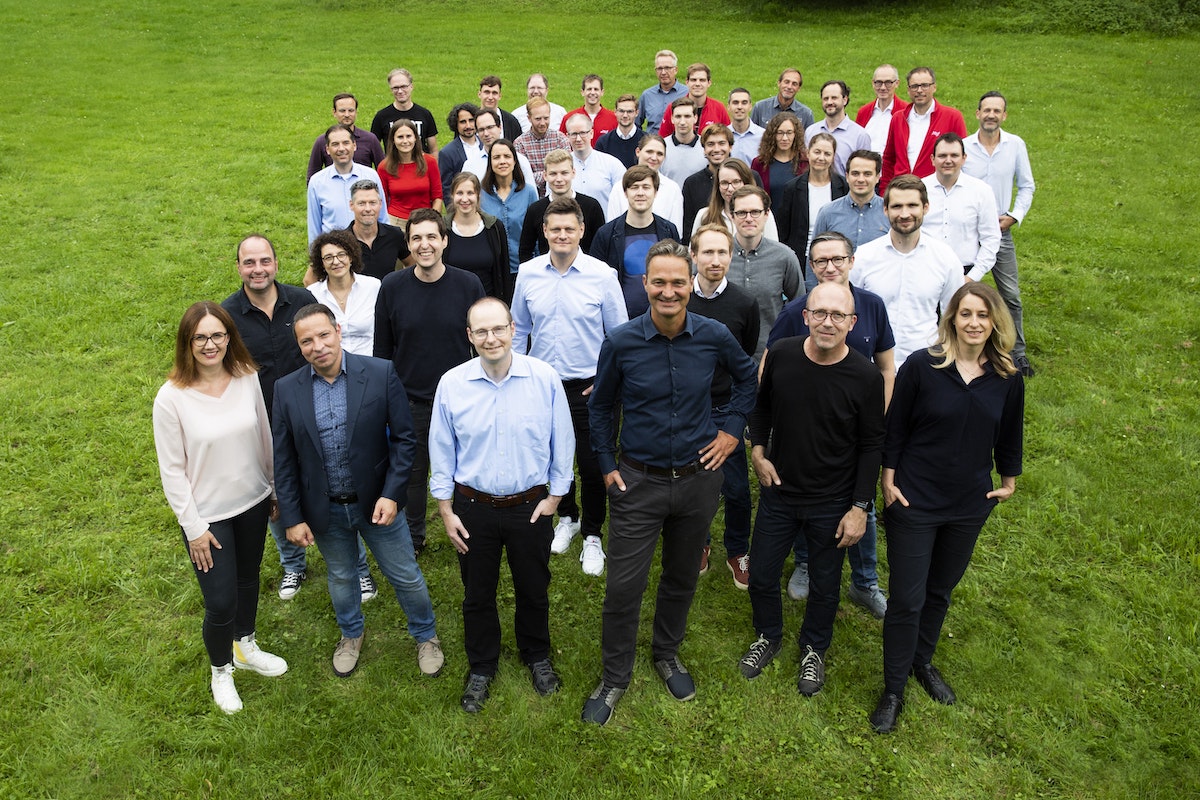Despite the pandemic, healthtech is looking pretty fit. 2020 saw telemedicine’s global explosion, 2021 saw a colossal 39 AI startups reach unicorn valuation and now words like decentralisation are quickly becoming staples of every healthtech startup’s pitch deck.
And VCs are monitoring its vitals: with 34 exits in the past 14 months, healthtech is growing faster in Europe than anywhere else.
So what’s on the cards for European biotech, medtech and digital health this year?
AI will keep making waves
According to Anna Badurska, head of the European Institute of Technology’s Health accelerator programme Catapult, powerful, user-friendly analytical and automation tools retain the top spot — and this will continue in 2022.
AI within hospital settings and Remote Patient Monitoring (RPM) applications allow both professionals and patients to sidestep the administrative burden in innumerate ways from scheduling appointments to predictive risk identification.
“Crucially, Covid put patients’ trust in digital health solutions and that won’t go away,” Badurska tells Sifted. “This year we can apply them to even more stages of the patient journey.”
She says AI software effectively supports clinical decision-making by flagging warning signs to doctors and patients from scans or in-app data, such as previous Catapult winner Newborn Solutions, which has developed a non-invasive white blood cell counting device. It uses high-resolution ultrasounds, powered with AI, to screen for serious fluid infections.
Similarly, Germany’s Meldex detects patients’ resistance to cancer therapies before they are administered.
And VCs are keeping a close watch on AI-powered healthtech; in November alone, biotech Owkin and telehealth Sword Health both became unicorns. Digital therapy company Ieso also raised $53m, biotech Nuritas bagged $45m and R&D cloud platform Synthace secured $35m.
Covid put patients’ trust in digital health solutions and that won’t go away
Regulators will crack down
Badurska cautions most AI can’t yet hold its own as a diagnostic tool, and says “clinical validation is absolutely essential. We’re not there yet.”
Rouzet Agaiby, associate director at eg technology, agrees that AI excels at identifying variation from the norm, or non-emergency triage, but regulators are wary of tech that “plays doctor”.
“Eliminating bias is also on everyone’s mind,” Badurska adds of the inevitable legislative rollout to follow. “The benchmarks are going to change, so being conscious of that is something we look for in Catapult startups.”
For example, the European Commission classified healthcare as a “high risk” industry last year, and were drawing up rules for companies to be fined up to €30m or 6% of their worldwide revenue if they’re caught using AI to materially distort people's behaviour, exploit the vulnerable or using biased data in social scoring.
Clinical validation is absolutely essential. We’re not there yet
Direct-to-consumer products will go greener
Within diagnostics, Agaiby adds that as take-home testing startups like Madrid-based Melio Health have entered mass production, the sector’s carbon footprint has shot up.
“We’ve seen huge innovation within PCR, cancer and sepsis, but since the pandemic tools that used to be sterilised have all become single-use only,” she says.
The virtues of sustainable materials and design — citing France-based startup (and finalist of Health Catapult 2021) BeFC’s recyclable biofuel batteries for wearables and low-power remote monitoring tools — could be just as disruptive as detecting infection quickly.
Agaiby also stresses the importance of user experience in direct-to-consumer products, especially in testing products that give patients autonomy: “You don’t want any result to alarm them, or for incorrect administering to compromise the results; so much design thought goes into the patient’s interpretation of the device’s results.”
The metaverse doctor's office gets closer to reality
Surgical robotics, behavioural sensors, blockchain cybersecurity and mixed-reality wearables are all on the horizon.
Statista forecasts the European AR/VR market will be worth $20.9bn by 2025, and back in 2016 Goldman Sachs named healthcare as a key sector for its adoption.
Strasbourg-based HypnoVR’s €4.5m seed round in December could see its tech incorporated into a range of medical fields from psychotherapy and pain management to immersive pre-operative consultations from your kitchen. This also means big things for healthcare education, as it could be used by consultants to share an operating theatre with students on another continent — students can feel the exact pressure of a beating heart against their fingertips with none of the associated risk.
While fully training surgical robots is still far off — you won’t likely be strolling into a metaverse doctor office this year — Nvidia aims for its Omniverse, an open-source simulation dubbed a “metaverse for engineers” to serve as a testing ground. As headsets become cheaper we’re likely to see mental health solutions, like Oxford VR’s immersive Cognitive Behavioural Therapy, among the first integrated into treatment options.
Statista forecasts the European AR/VR market will be worth $20.9bn by 2025, and back in 2016 Goldman Sachs named healthcare as a key sector for its adoption
In-person clinical trials will become a thing of the past
Remote patient monitoring apps lend themselves deftly to the clinical trial process, and can cut out things like burdensome documentation and travel that causes high dropout rates and wasted resources.
For example, Italian startup Patchai, Health Catapult’s 2020 third place winner and a recent acquisition of global healthcare consultancy Alira Health, increases patient retention and engagement within clinical trials by providing a virtual and personalised experience led by virtual assistant Pat.
Patchai has achieved a 95% protocol adherence rate — up to eight times higher than physical trials — since the programme was expedited to combat a 30% dropout rate in clinical trials in 2020.
Cofounder Alessandro Monterosso predicts consultations and participant training using mixed reality will likely raise the standard of care in the near future: “Healthcare is in the phase of full implementation of a hybrid ecosystem: we will now tap into decentralisation, and it is going to be virtual reality.”
Higher engagement levels with the app enable precise analysis that would not have been possible before, and lower implementation costs mean that “unprecedented quality and quantity of data” can be used to follow progress of the trials meticulously.
Data without borders
It’s not only startups who want to make patients’ healthcare data more accessible.
There’s an emphatic push for a European Health Data Space — an interoperable, secure, GDPR-compliant ecosystem that would eliminate data silos and fuel innovation, development and research. It’s also quickly becoming a hot topic thanks to the rising tensions in the French presidential election over Microsoft's ownership of patient records.
Finland’s Findata is one example of how this can work, and the UK is keen to catch up.
The UK’s NHS X programme Data Saves Lives brings this to the fore after a review found clinicians lose four hours a week to inefficient hardware. While we’re likely to see an increase in data accessibility in the coming year, adviser Tina Woods tells Sifted that duplicate datasets and differing patient record formats make the Data Saves Lives programme “challenging” to deliver.
Femtech will make up for lost time
The gender research gap leaves many avenues open for womens’ health products in 2022, and Elvie’s £70m Series C in September proves these solutions can scale.
Andrea Zitna, Elvie’s former chief revenue officer, tells Sifted the key to their success in an increasingly crowded market is monetising community, and that “many women's health products start out as community-first rather than product-first”.
As the market for these communities continue to grow, femtech startups will gain a platform for forums and in-person meetups, provoking a stream of quantitative data that will pave the way for more intersectional research and innovation.
Deepali Nangia, VC at Speedinvest and founder of Alma Angels, predicts the most success from founders creating their own data to tackle general health conditions that impact women disproportionately or differently, “from migraines to cardiovascular disease to Alzheimer’s”.
The gender research gap leaves many avenues open for womens’ health products in 2022
Apply to Health Catapult
EIT’s Health Catapult programme will bring together 42 promising European startups on the forefront of these trends to take on the most pressing issues facing European healthcare systems.
With access to a network of over 400 investors spanning digital health, medtech and biotech, the finalists will compete at the EIT Health Summit in May for €210 investment.
Applications are open now until March 14th — learn more here during a webinar on March 2nd.

